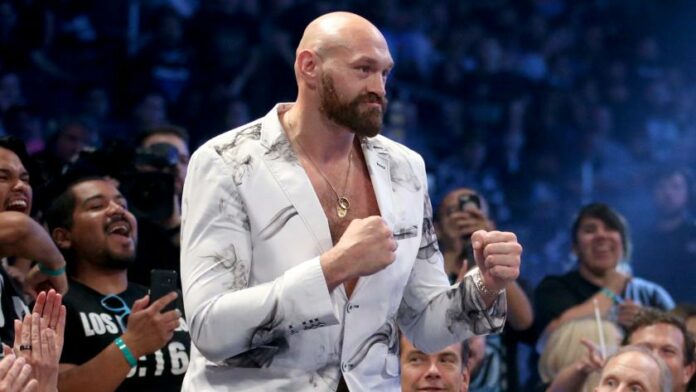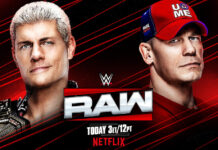
Boxing history will be made this afternoon, but you wouldn’t know it. For the first time in 25 years, an undisputed champion will be determined in the heavyweight division, with the last time being when Lennox Lewis beat Evander Holyfield via unanimous decision to claim four belts in 1999, but you wouldn’t know it.
You wouldn’t know it because the historic bout between the two top undefeated heavyweights in the sport hasn’t received much publicity, a combination of its setting and when it takes place. Tyson Fury, the eccentric, albeit skilled British champion, will square off with Ukrainian champion, Oleksandr Usyk for the WBA, WBC, IBF and WBO belts in Saudi Arabia with a start time for the event of noon on the east coast. The main event is scheduled to be in the ring around 5 PM on the east coast, not exactly the common time slot for a top notch championship fight. Usually, the alphabet soup of championships becomes almost comical in boxing and can often be disregarded in favor of the “recognized” champion of specific divisions in terms of the general consensus of who the top fighter is in a specific weight class. Promoting those contests as championship bouts is often just a formality. However, in this case, given the lineage of the sanctioning organizations and the history of the titles themselves, the winner of this bout will be considered the true champion of the heavyweight division, thus why the moniker of undisputed is associated with this fight.
The reasons for why this fight flew under the radar to such a disappointing degree are numerous, but can be boiled down to the economics of boxing, the red tape of such a situation ruined the sport for years.
There was a time, particularly in the mid-2000s when boxing promoters wanted to protect their golden geese so different from the past when top challengers would fight top champions, the spectacle of the sport became the selling point, with the notion that simply the opportunity to see a superstar boxer compete in what amounted to a glorified exhibition instead of a serious threat to their winning record, took priority. The staggeringly successful tenure of Floyd “Money” Mayweather was probably what started the trend, but when you sell the audience on mostly sizzle rather than substance, it eroded not only the audience, but also the number of fans that were willing to pay the hefty price tag to watch it. Keep in mind, in the latter years of Mayweather’s contract with Showtime, the network actually lost money on some of his fights because of the massive guarantee they paid to promote his fights.
As technology evolved and streaming services, specifically, DAZN got into the boxing business, offering mega cash to ink fighters for more international distribution, the economics of the industry more or less eliminated the sport’s traditional channels. After more than 45 years and hosting some of the most historic fights, HBO left the boxing business, as it was economically unfeasible to compete with the money fighters were offered elsewhere. At the end of last year, Showtime followed suite and ended its nearly 40-year history of broadcasting boxing. In many ways, it was the evolution of the media landscape, something that only more recently HBO is adapting to, and something that the parent company of Showtime began to pursue, is what eliminated boxing from its usual platforms. Remember, the reason that boxing was such a staple of the premium channels in their heyday was because the access to those top fights, along with original series like the Sopranos, were one of the main selling points of why customers could add either channel to their cable packages. Obviously, HBO and Showtime were primarily selling to the domestic market and it was a successful formula for many years, specifically with the movie offerings as well.
With more media options through the internet and then the addition of streaming services, there were more options for viewers so the selling points of both HBO and Showtime didn’t have the same level of cache as they had before. When cable companies wanted to retain subscribers, the on demand technology of movies available at literally the push of a button took away a lot of the marketing strategy of premium channels that tried to draw customers for an additional fee with those movies on their line-up. When there are countless media options online, it becomes less necessary for customers to add HBO to their cable package. This was only more recently addressed through the Warner Brothers Discovery merger with the expansion of the HBO Max streaming platform. Instead of marketing to just cable customers, the Max service can sell to anyone with an internet connect.
However, at the time when HBO and then Showtime left the boxing business, they were trying to sell to strictly the domestic market, whereas DAZN looked to promote internationally, a demographic that had stronger ties to boxing than in the United States because of the number of international boxing champions. The bottom line is, streaming platforms was able to offer bigger money because of its international range, but the domino effect of that was that the sport in the United States before more of a side note than a main stream draw, with only the occasional exception. Sure, Premiere Boxing Champions brought some cards to broadcast television, and ESPN aired some fights on cable, but neither of them were consistent enough to truly establish an audience in the modern era.
With boxing not a part of the conversation of the general public because of the lack of main stream distribution, the money offered to host fights was also affected. Las Vegas, the fight capital of the world, can’t compete with the oil money that Saudi Arabia offers as a part of its propaganda campaign to bring western events to the country. It’s a harsh reality, but when the Saudis offer exponentially more cash than promoters in the United States or anywhere else for that matter, the competitors have to take it. There’s just too much financial security at stake, and the ability to make as much money as possible is the goal for any business. Keep in mind, the Saudi government doesn’t bring these events to the country for any type of profit, but rather just for the publicity so other promoters can’t realistically offer that type of cash. Tyson Fury is reportedly going to make at least $100 million to defend his title against Usyk in Saudi Arabia. The Ukrainian heavyweight will earn an estimated $30 million for his contract.
That’s simply too much money to reasonable turn down, but the ripple effect of that is that this historic undisputed title fight takes place at 5 PM, which just doesn’t have the level of importance of the prime time Las Vegas fight that happens late-night on the east coast after the anticipation throughout the under card.
The fight itself, a bout that was originally scheduled for February, but was postponed after Fury suffered a cut in training, is very intriguing even if it goes mostly unnoticed by the main stream audience.
Tyson Fury is as eccentric and controversial as he is skilled. When Fury is focused and in shape, he’s a brilliant heavyweight that can use his reach to land powerful combinations. Make no mistake about it, when Tyson Fury is in top form, he has proven to be the best heavyweight of the modern era. However, the last time Fury competed, a bout that was also in Saudi in October of last year, it was for the mega fight against former UFC heavyweight champion, Francis Ngannou in a star-studded spectacle. The fight had celebrities and former champions in attendance. Despite being his first boxing match, the MMA fighter was very competitive, while Fury won a somewhat controversial split decision. Many pundits wondered if Fury took his opponent too lightly or if Ngannou was just very dangerous as a boxer. That question was answered when Anthony Joshua knocked out the former UFC champion in the second round of a fight in Saudi Arabia this past March.
So, questions remain about what Tyson Fury will show up this afternoon, but that’s usually a part of the discussion for any Fury bout, it’s a part of the mystic that he brings to the table. His opponent, Oleksandr Usyk is a dangerous and powerful puncher with no major flaws in his game. With a record of 21-0, Usyk has won the majority of his fights by knockout, but has also shown that he has the cardio to go the distance. Despite his notable skills, Usyk remains mostly unknown because the only high profile wins on his record are the pair of victories against the previously mentioned Anthony Joshua in 2021 and 2022 respectively. Considering that Joshua found a way to lose each time he was near consideration for the top spot in the division, the wins didn’t generate as much publicity as they would’ve other wise.
Undoubtedly, Usyk is a dangerous opponent that will drop Fury if the British competitor is unprepared, but Tyson Fury also has the advantage in almost every aspect of the fight. Fury has the experience advantage and has fought tougher competition during his career. Fury is actually younger and will have a major height and reach advantage during the contest.
As is usually the case for his fights, the result will depend on what Tyson Fury shows up for the bout.
His undefeated record of 34-0-1 suggests that Tyson Fury will be victorious, and I will pick him to get the win because I’d guess that he will use his reach advantage to win rounds on the score cards. As mentioned, it should be an entertaining fight, but it’s still disappointing that the bout that will determine the first undisputed heavyweight champion in 25 years will probably be a footnote on the weekend of NBA and NHL playoffs.
What do you think? Share your thoughts, opinions, feedback, and anything else that was raised on Twitter @PWMania and Facebook.com/PWMania.
Until next week
-Jim LaMotta
E mail [email protected] | You can follow me on Instagram, Facebook, & Threads @jimlamotta89







